Table of Contents
Top 5 Best Substitutes for Fresh Rosemary
When you need a fresh rosemary substitute, dried rosemary, thyme, oregano, savory, and sage are the most reliable options. These herbs provide similar flavor profiles and work well in various dishes. Below we explain exactly how to use each substitute with precise ratios, cooking tips, and dish-specific recommendations.
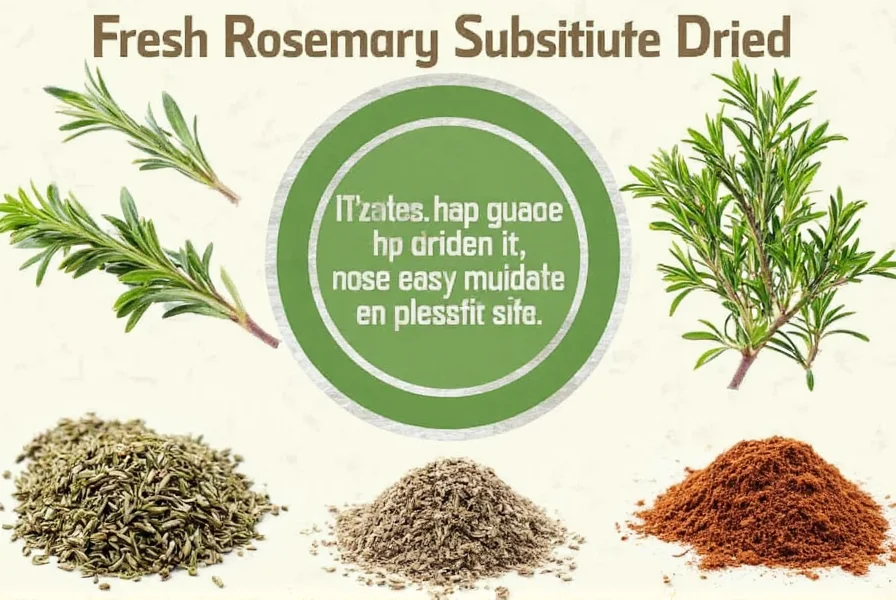
Why You Need a Rosemary Substitute
You might need a rosemary substitute for several practical reasons:
- Running out of fresh rosemary during cooking
- Traveling without access to fresh herbs
- Allergies or dietary restrictions
- Need for more concentrated flavor in slow-cooked dishes
Understanding which substitute works best for your specific recipe is key to maintaining flavor integrity.
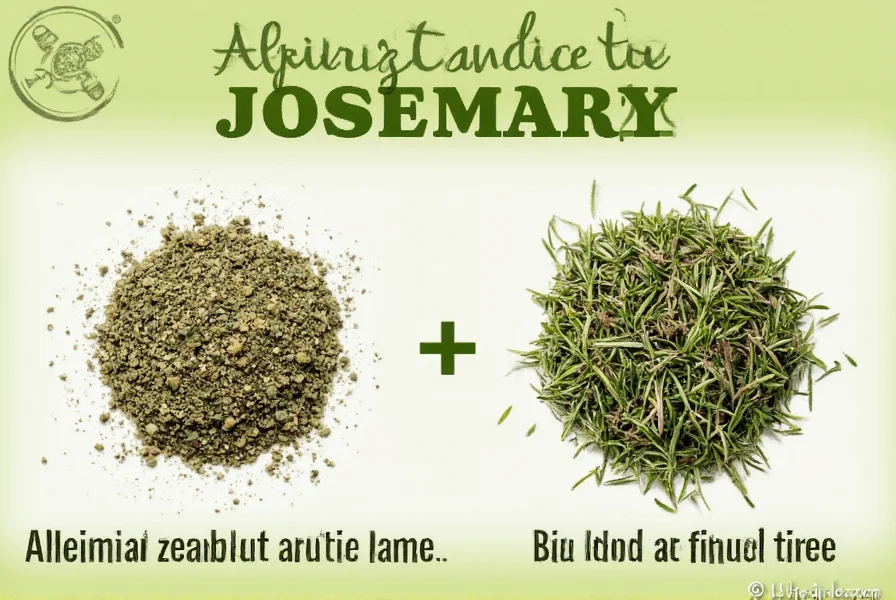
Top 5 Best Rosemary Substitutes
1. Dried Rosemary
Dried rosemary is the closest match for fresh rosemary, with 3x more concentrated flavor. Use 1 teaspoon dried for every 1 tablespoon fresh. Ideal for roasted meats, stews, and slow-cooked dishes where flavors develop over time.
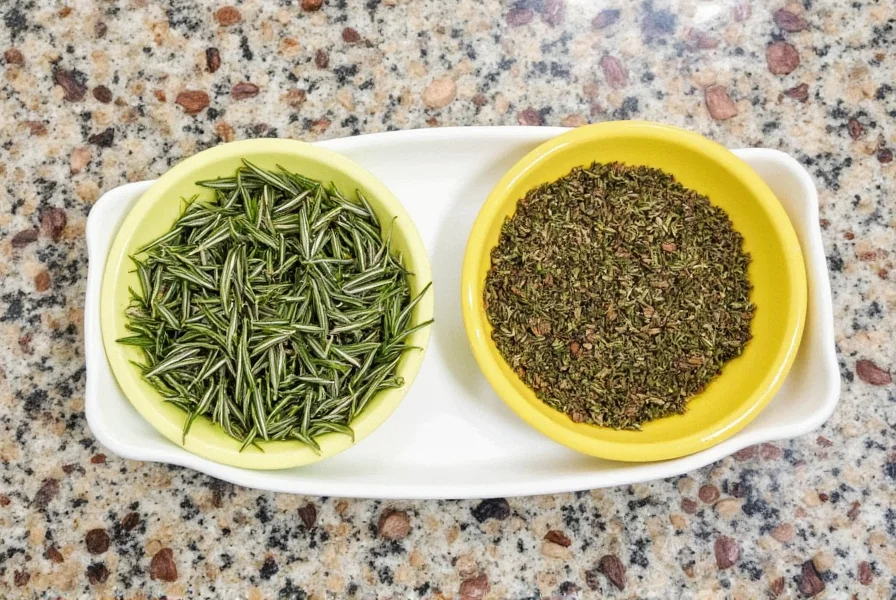
2. Thyme
Thyme offers a milder, floral alternative with earthy notes. Use 1.5x the amount of dried thyme compared to fresh rosemary. Best for sauces, soups, and poultry dishes where delicate flavors shine.

3. Oregano
Oregano provides a stronger, more pungent flavor. Use half the amount compared to fresh rosemary. Perfect for Italian dishes like pizza, pasta sauces, and tomato-based recipes.
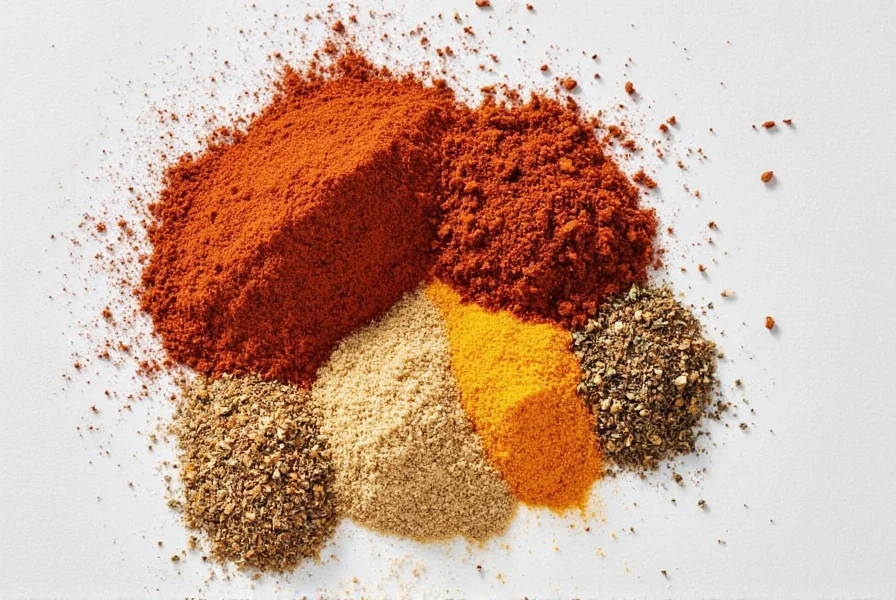
4. Savory
Savory delivers a peppery, herbal profile similar to rosemary. Use equal amounts as fresh rosemary. Excellent for roasted vegetables, potatoes, and hearty meat dishes.
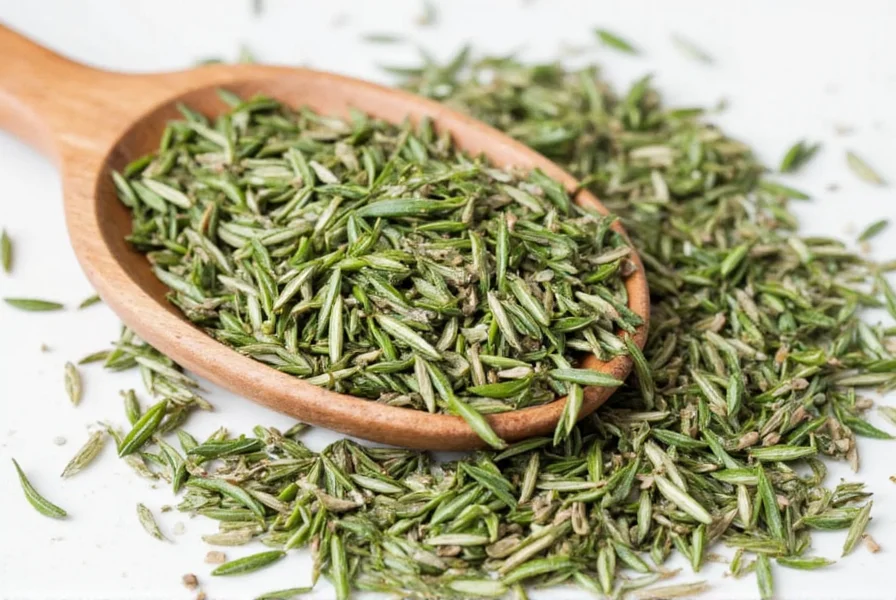
5. Sage
Sage has a rich, slightly bitter taste. Use half the amount of fresh rosemary. Ideal for stuffing, breads, and holiday roasts where its robust flavor complements meats.
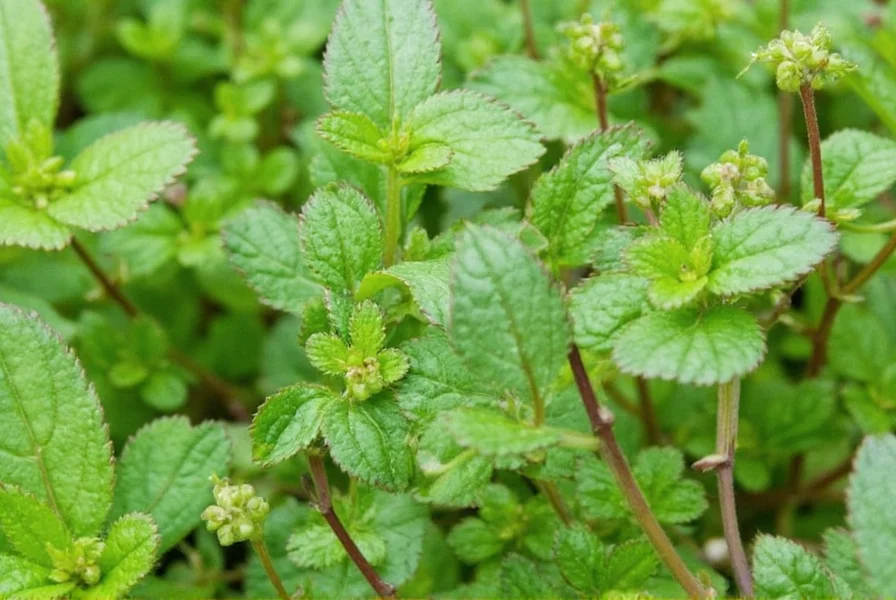
| Dish Type | Best Substitute | Ratio | Notes |
|---|---|---|---|
| Roasted Meats | Dried Rosemary | 1:3 (dried:fresh) | Use sparingly for bold flavor |
| Pasta Sauces | Thyme | 1.5:1 (dried:fresh) | Perfect for creamy or tomato-based sauces |
| Italian Dishes | Oregano | 1:2 (dried:fresh) | Great for pizzas and baked dishes |
| Vegetable Medleys | Savory | 1:1 (dried:fresh) | Enhances roasted or sautéed veggies |
| Stuffing or Breads | Sage | 1:2 (dried:fresh) | Perfect for holiday meals and baked goods |
How to Use Substitutes Correctly
- Adjust quantities: Dried herbs are 3x more potent than fresh. Use 1 teaspoon dried for every 1 tablespoon fresh.
- Add early: Dried herbs need time to release flavors—add at the beginning of cooking for stews or roasts.
- Combine strategically: Mix thyme and oregano (2:1 ratio) to mimic rosemary's complexity in Mediterranean dishes.
- Test small batches: Start with half the recommended amount and adjust to taste.
Buying Guide for Dried Herb Substitutes
Dried Rosemary
Key features: Strong woody aroma, earthy flavor
Best for: Roasting, baking, stews
Storage tip: Keep in airtight container away from light for up to 2 years
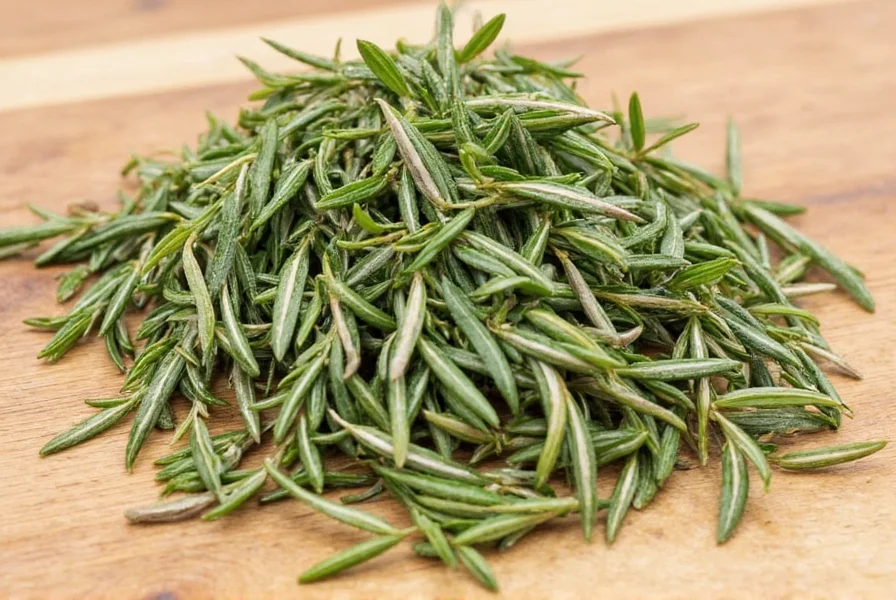
Dried Thyme
Key features: Mild floral scent, earthy minty flavor
Best for: Sauces, braises, slow-cooked meals
Storage tip: Store in dark glass jar to preserve potency
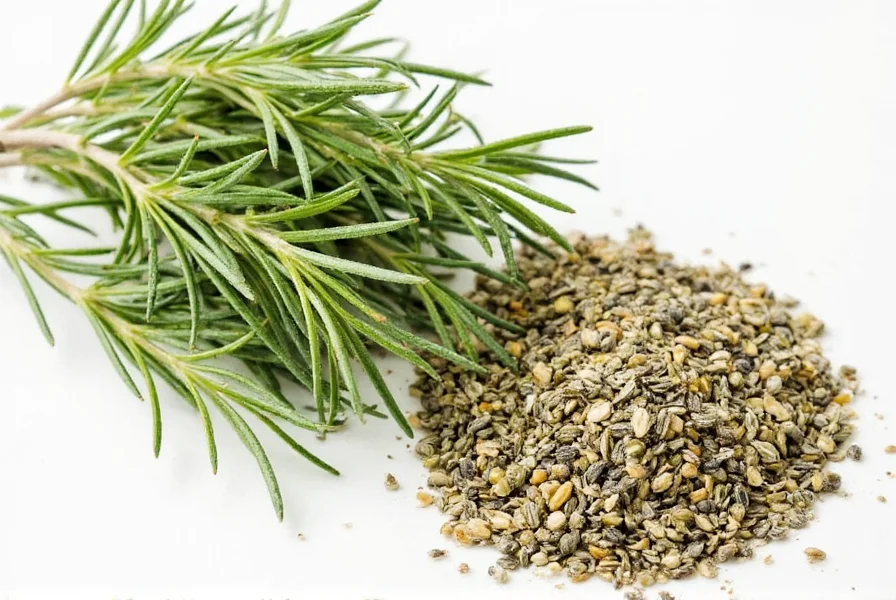
Dried Oregano
Key features: Pungent aromatic scent, robust spicy flavor
Best for: Pizza, pasta, tomato-based dishes
Storage tip: Avoid storing near heat sources to prevent flavor loss
Dried Savory
Key features: Peppery herbal scent, bold bitter notes
Best for: Roasted vegetables, grain dishes, meats
Storage tip: Keep in cool, dry place for maximum freshness
Dried Sage
Key features: Rich peppery scent, strong aromatic flavor
Best for: Stuffing, breads, holiday roasts
Storage tip: Use within 18 months for best flavor
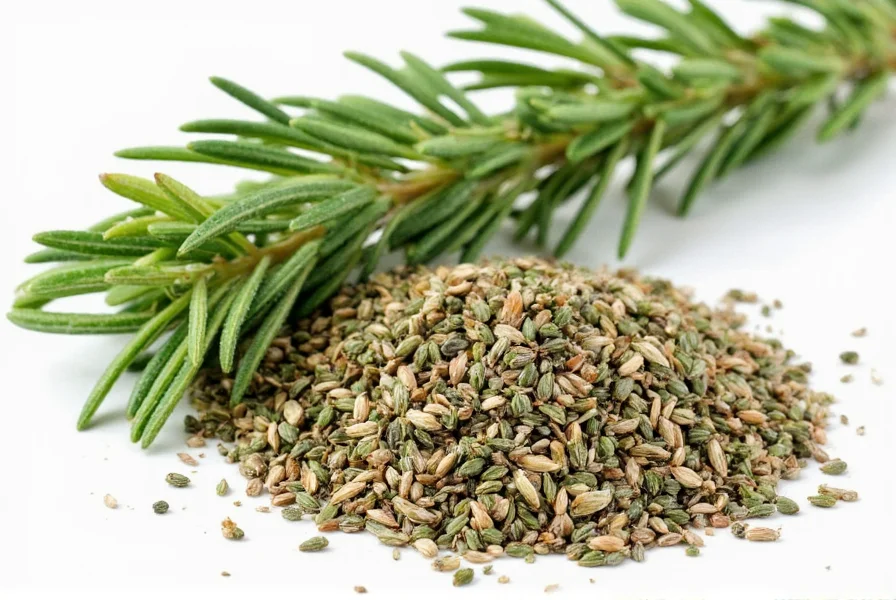
Pro Tips for Optimal Flavor
- Grind tough herbs: Crush dried sage or rosemary before adding to sauces for better flavor distribution
- Layer flavors: Add dried herbs early for base flavor, then fresh herbs at the end for brightness
- Check expiration dates: Dried herbs lose potency after 1-2 years—replace old stock for best results
- Buy whole leaves: Whole dried herbs retain flavor longer than pre-ground versions
Conclusion
Knowing the right rosemary substitute for each dish ensures consistent flavor in your cooking. Whether using dried rosemary, thyme, oregano, savory, or sage, proper quantity adjustment and timing are critical. Always consider the dish type and cooking method when choosing your substitute for best results.

Frequently Asked Questions
How much dried rosemary equals fresh rosemary?
Use 1 teaspoon dried rosemary for every 1 tablespoon fresh rosemary. Drying concentrates the flavor compounds, making dried rosemary 3x more potent than fresh.
What's the best dried substitute for fresh rosemary?
Dried rosemary is the closest match, but when unavailable, dried savory provides the best alternative with its peppery, slightly bitter profile. For Mediterranean dishes, combine dried thyme and oregano (2:1 ratio) to mimic rosemary's complexity.
Can I substitute dried thyme for fresh rosemary?
Yes, use 1.5x the amount of dried thyme compared to fresh rosemary. Thyme works best in sauces, soups, and roasted chicken where its floral notes complement the dish without overpowering it.
How should I store dried herbs to maintain freshness?
Store dried herbs in airtight containers away from light, heat, and moisture. A cool, dark pantry is ideal. Properly stored, dried herbs maintain potency for 1-2 years. Avoid storing above stoves where heat and steam degrade quality.
Why does my dried herb substitute taste different from fresh rosemary?
Drying changes the chemical composition—volatile oils that create rosemary's piney aroma partially evaporate. This results in more concentrated but different flavor. Always add dried herbs earlier in cooking to allow flavors to develop fully.
Can I make my own dried rosemary at home?
Absolutely! Air-dry fresh sprigs by hanging them upside down in a warm, dry, dark place for 1-2 weeks. For faster results, dry in oven at 170°F (75°C) for 2-4 hours. Store completely dried leaves in airtight containers once cooled.
Which dishes work best with dried herb substitutes for rosemary?
Dried herb substitutes work best in slow-cooked dishes where flavors develop over time: stews, soups, braises, roasted meats, and holiday stuffings. Avoid using dried substitutes in dishes where fresh herbs are added at the end (like salads or garnishes), as they won't provide the same bright, fresh quality.

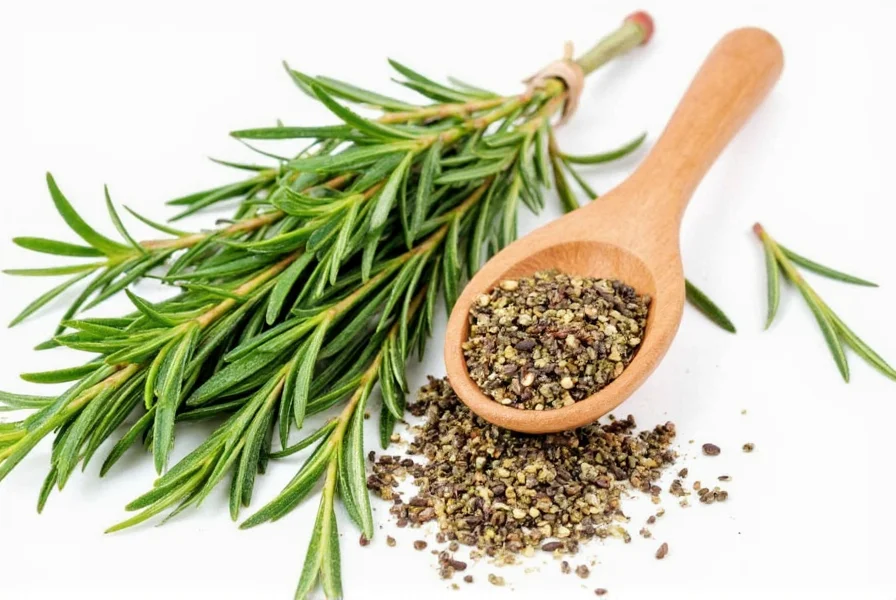









 浙公网安备
33010002000092号
浙公网安备
33010002000092号 浙B2-20120091-4
浙B2-20120091-4